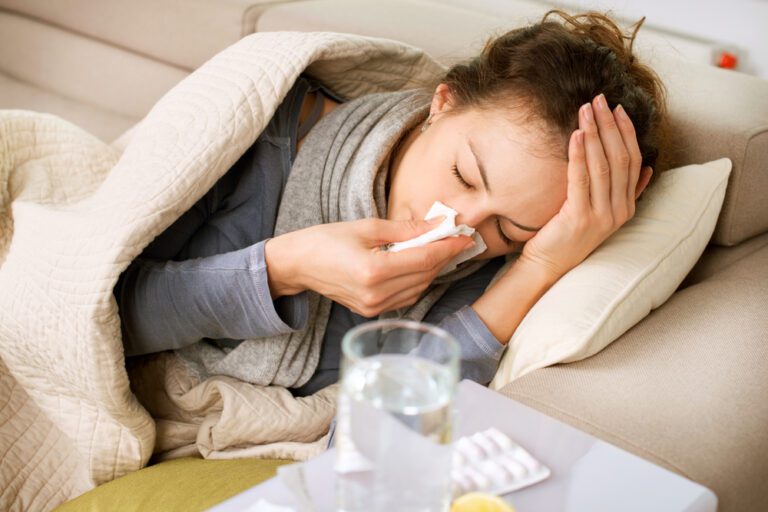Prevention is always better than treatment. In other words, identifying certain signs before a certain condition becomes serious and repercussions can be seen, is always a good idea. Preventive tests increase your chances of being healthy for longer, instead of spending your retirement years with visits to all sorts of doctors.
If you’re wondering what exactly you can do to have a long, illness-free life, then check out this list of health screenings and tests which, performed at the right time, they can save your life.

These health tests should not be overlooked!
Blood pressure
66% of men and 71% of women over the age of 70 have high blood pressure, but this condition is in many cases overlooked as people do not have any clear symptoms.
The blood pressure test is one of the most important ones, as it can reveal a lot of useful information about your body and health condition. From hypertension to stroke, heart disease and diabetes, this test is one of the simplest ones but highly comprehensive.
Preventive blood pressure tests should be performed annually.
Glucose levels
Glucose levels should be checked from time to time, especially in the case of adults aged 45 and over; however, if there is a history of diabetes in your family, doctors recommend more frequent tests. That’s because glucose levels can change quite radically from one year to another.
When performed frequently, people who fall in the pre-diabetic category can receive the right medical indications and treatment to reduce their risk of diabetes. It is important to succeed in changing your lifestyle in due time, not when it’s too late and fewer things can be done to make the situation better.
A simple prick in the finger is all it takes to live your life the way you want to, without any dietary and medical restrictions.
Related:If One of My Parents Had Diabetes, Will I?
Cholesterol levels
This type of test can be performed by your local nurse, no fancy medical equipment needs. It is important to verify your cholesterol levels, especially if you have a family history. Aim to test yourself regularly, once a year, starting from as early as your 20s.
What does your cholesterol level say about your health? For instance, it can indicate stroke and heart attack risks. When discovered in time, you can make the correct lifestyle changes to reduce such risks.
Mole and skin checks
Melanoma is the 5th most common cancer in both men and women; therefore, getting your skin checked as early as possible is crucial in increasing your survival chances. Moles can appear at a very young age so early prevention is essential.
Check your skin annually and look for any changes in terms of size, shape, color or distortions. This is valid especially for people with an increased number of moles, but preventive skin checks are always welcomed, no matter your skin predisposition.
Glaucoma
Glaucoma-related tests apply to everyone, but they are specifically recommended to adults aged 40 and older. Glaucoma is a group of eye diseases that affect one’s optic nerve. People with a family history of this disease are more likely to be affected by glaucoma some time in their lives. This is why a glaucoma test should be included in your regular eye test.
The test consists in a puff of air applied to your eye by a specialized eye doctor, and that’s about it.
Colon screening
Needless to say, that the colon screening is not as fun as the glaucoma test. However, it is extremely necessary for adults aged 50 and older, especially those with a family history of colon problems and cancer. The initial screening can include only blood tests; if the situation requires it, then your doctor might require a colonoscopy as well.
Colon cancers is one of the most common types of gastrointestinal cancer, and among the most dangerous types of cancer. It usually affects older adults but it can appear at any age, therefore preventive screenings can save your life.
Read more here:Colon Cancer Is Very Sneaky! Here Are 9 Ways to Reduce Your Risk
Dental checkup
Dental checkups prevent plaque, tartar, cavities and tooth decay; making sure your teeth and gums are healthy is important not only for your oral health but also for your overall health. That’s because certain dental conditions, such as periodontitis, can increase the risk of oral cancer, heart disease, and lead to other serious health complications.
According to most dentists, it is important to have routine dental checkups twice a year. A visit to the dentist can help you identify problems you didn’t even know you have.
Read also:10 ‘Healthy’ Habits That Are Damaging Your Teeth
Prostate and testicular check
It might be uncomfortable for some, but this type of test should be performed by all men, especially those aged 40 and over. To make sure nothing unusual is going on down there, men should self-check their private parts regularly. If they notice something strange, then they should pay a visit to the doctor as soon as possible.
Testicular and prostate checks are extremely important as the treatment for testicular cancer can really pay off, if the cancer is discovered as early as possible. “People forget that you can die from this disease. Prostate cancer can kill you and right now the PSA is an important way to determine what your risk of dying of prostate cancer is, and hopefully allow you to take steps to reduce that risk,” explains Herbert Lepor, chairman of urology and professor at the NYU School of Medicine in New York.
Pap smear
This one applies to all ladies, who should start going to such examinations as early as age 21. Pap smears can identify inflammation, precancerous cells, including HPV, which can cause cervical cancer. The procedure may be slightly uncomfortable but it is just for the moment, not on the long run.
According to specialists, women aged 21-29 should have this test every 3 years, women aged 30-65 should have it every 3 years or an HPV test every 5 years or a Pap test and HPV test together every 5 years; women aged 65 and older might not need the Pap tests, depending on one’s doctor’s recommendations.

Mammogram and breast check
Another test for ladies alone; one that specialists consider extremely important and not to be overlooked: breast checks. That’s because such checkups can identify lumps two or three years before they can actually be felt by you or your doctor.
According to statistics, the number of deaths from breast cancer has reduced with more than 25% in the case of women who undergo regularly screenings.
Who should get mammogram and breast checks? Every woman, from as early as possible, but more so in the case of women aged 50 and over. That’s because “there are several risk factors associated with breast cancer. As with many other diseases, risk of developing breast cancer increases as you get older,” explains Dr. Mridula George, associate program director of breast medical oncology at Rutgers Cancer Institute of New Jersey.

























